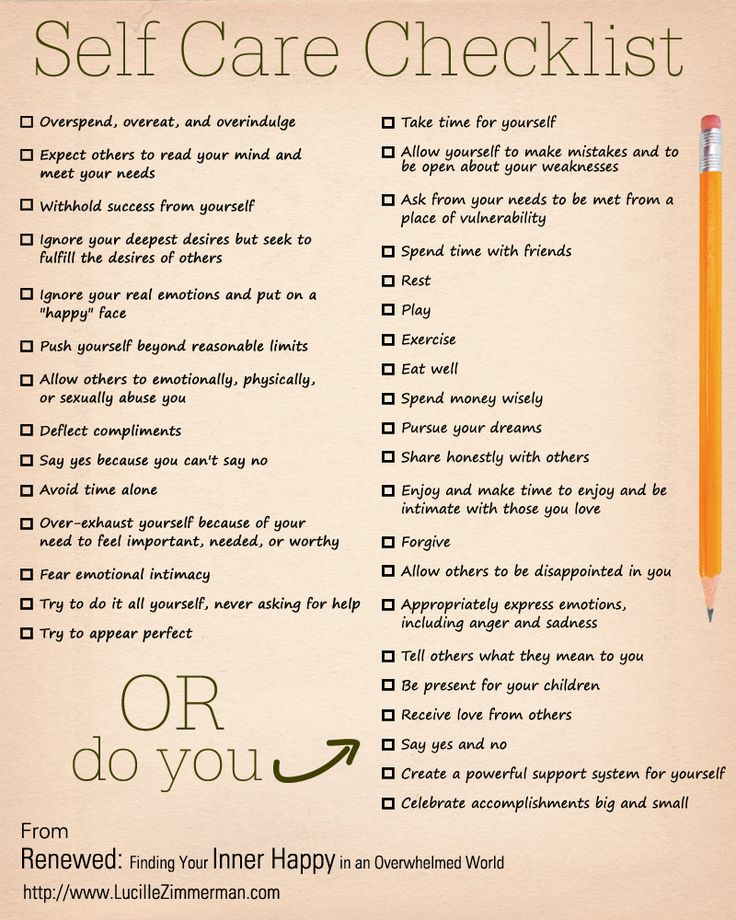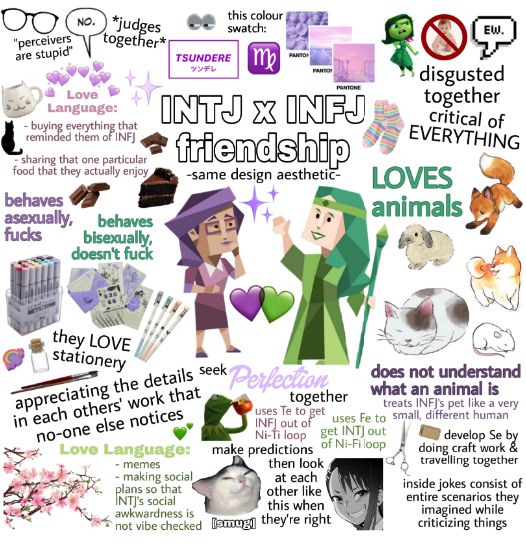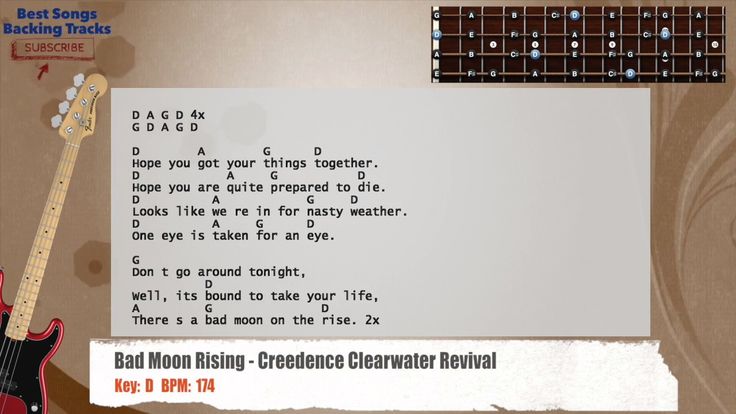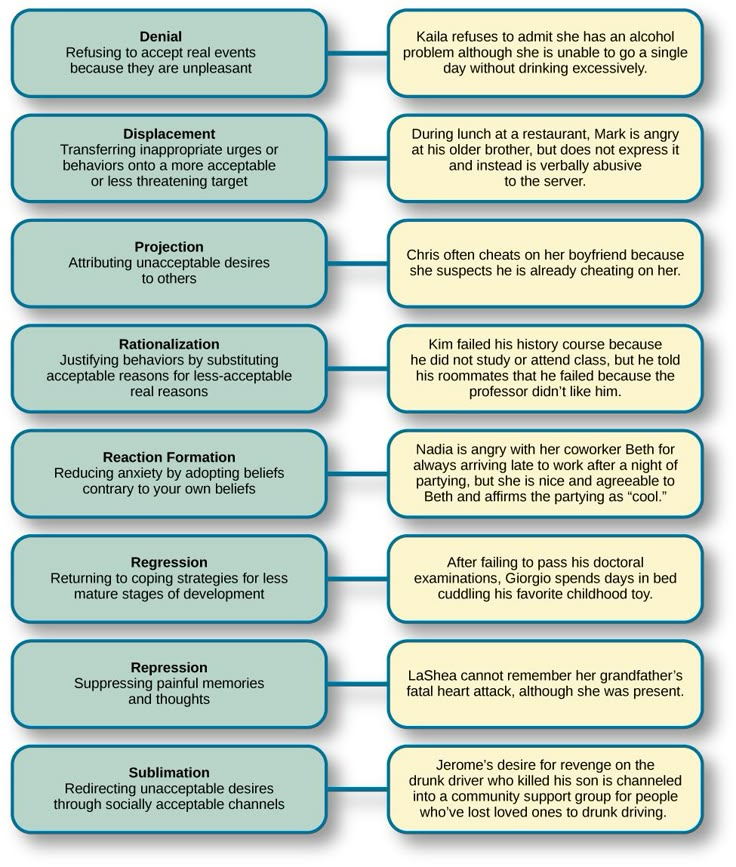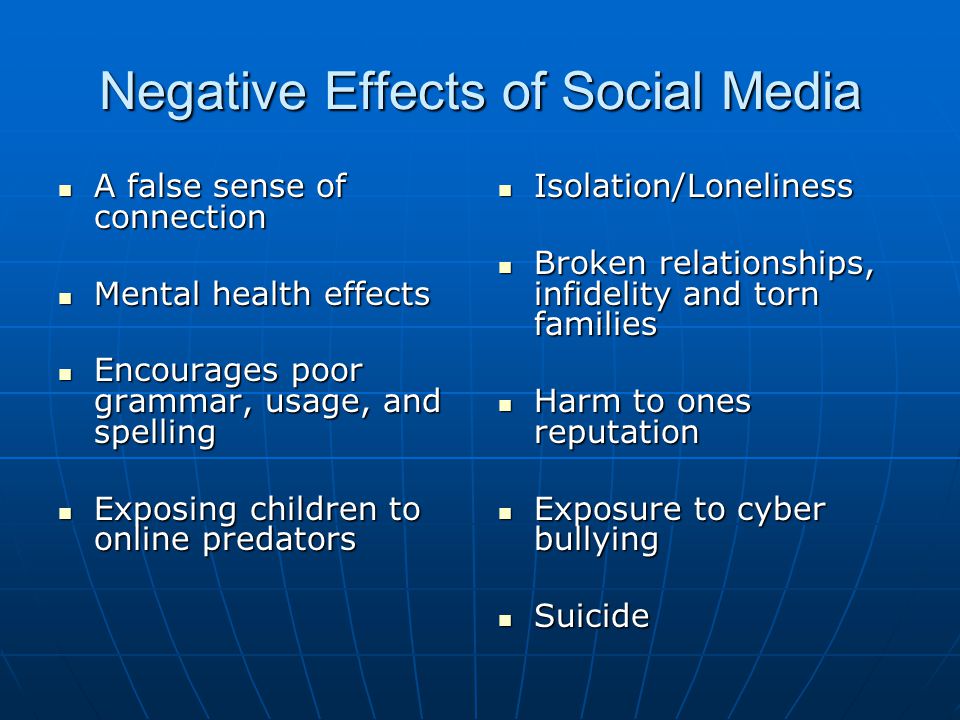Apologies not accepted
What to Do When Someone Doesn't Accept Your Apology · Dr Allison Answers
So you messed up, and now you’re saying “I’m sorry.” The problem is, the person you’re apologizing to isn’t having it. It’s a tough spot to be in, but it happens. Watch to learn what to do when someone doesn’t accept your apology.
Stay steady and don’t take it back. I can’t tell you how often I’ve heard someone apologize, the other person doesn’t accept it, and then they say, “Well nevermind, I’m wasn’t sorry anyway. ” We are not third graders on a playground. You apologized for a reason, so while you might feel a little bit stunned by the person’s response, stay steady and calm, and leave the apologizy out there. Don’t take it back.
Don’t get defensive. Apologizing is vulnerable. You’re sticking your neck out there and leaving yourself open to the possibility of rejection. So when the person doesn’t accept your apology, you feel hurt and disappointed. You feel rejected. Notice these emotions for what they are, and sit with them, rather than flipping them and getting defensive. It’s natural to feel confused or hurt or rejected. So feel that, and resist the brain’s temptation to launch a counter attack.
Give them space. You know the phrase,”If at first you don’t succeed, try try again”? Well, that doesn’t apply here. At least not yet. Give the person some time and space to process the apology and their feelings. They may feel differently once they have some time.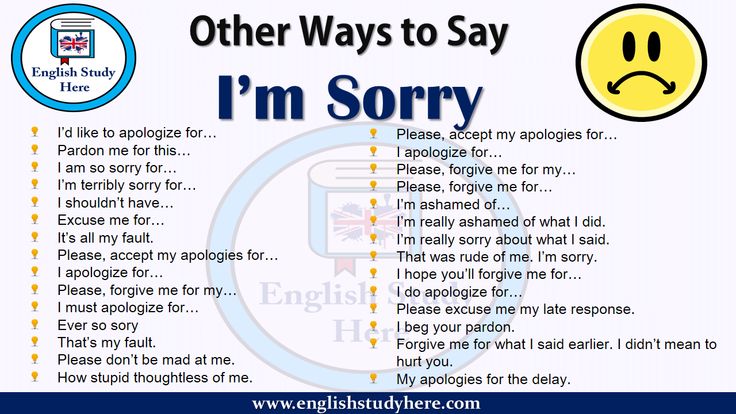 Whatever it was that prompted you to apologize was hurtful or disappointing enough. Don’t make it worse by crowding their space and disrespecting their wishes.
Whatever it was that prompted you to apologize was hurtful or disappointing enough. Don’t make it worse by crowding their space and disrespecting their wishes.
Show them with your actions. The age old phrase, “Actions speak louder than words” totally applies here. Show them you’re sorry by correcting whatever action prompted the apology in the first place. If you snapped at your partner, work to be more patient and compassionate across the next week. If you haven’t been checking in on a friend who needs it, double down on your efforts to be supportive. And if you didn’t carry your load on a project, offer to take the lead on the next project. Step up without being asked. Show the person that you’re sorry by learning from and correcting your mistake.
Revisit the issue. After some time has passed, and you’ve done these previously mentioned things, take an inventory of how the relationship feels. Does the person seemed to have moved forward? Does the relationship feel like it’s being repaired? If things still feel strained or tense, it might be worth
gently revisiting, reminding the person that you haven’t forgotten or minimized what happened and what you’re still sorry and actively working to improve things.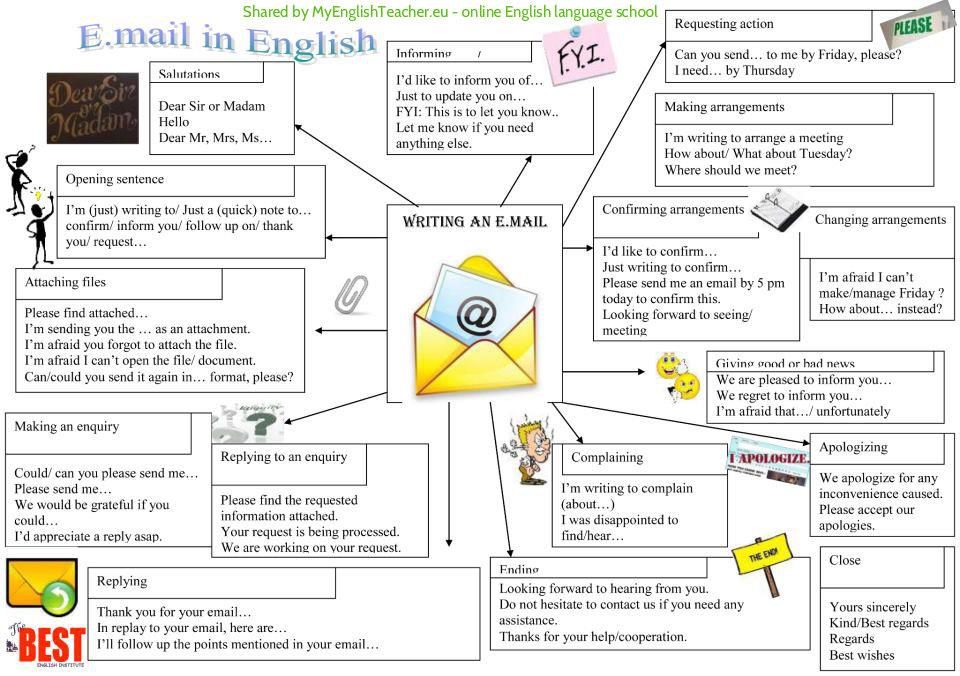
It’s hard to say you’re sorry. And it can be even harder when someone doesn’t accept your apology. But that’s ok. People are allowed to not accept your apology or need some time to think. You can’t control what they say or do, but you can control what you say and do. So stay steady and calm, manage your emotions of rejection and hurt, and show your apology through consistent actions.
There’s no guarantee it will change the person’s mind, but it’s certainly likely to help.
Need some more help with your apology? Check out the one word that completely kills an apology.
The Real Reason I Haven’t Made a YouTube Video in over a Year
Hi. Hello? Is this thing on? It’s been over a year since I posted a new video. To be honest, I didn’t think anyone …
Coronavirus Anxiety: A Psychologist’s Tips to Keep Panic and Fear from Taking Over
In the last several weeks, our world has been on edge as the COVID-19 coronavirus spreads.
 Fear in the US …
Fear in the US …Is Calm Worth It? Calm App Review 2020
Picture this. It’s 2006, and 23-year-old me is a brand new graduate student. Bright eyed and bushy tailed, I was …
How to Stop Procrastinating. A Psychologist’s Trick for Tackling “I’ll Do It Later.”
Procrastination might seem like a silly little habit, but if you’re a chronic procrastinator, then you know how much damage …
Do You Really Need a Mindfulness App?
Several months ago, I was talking with one of my friends’ moms. We’d chatted months earlier about mindfulness, and after …
You’ll Figure It Out: Opening Up About My 2019 Mantra
Several years ago, I quit making New Year’s resolutions. They felt empty and discouraging. They felt like a set up. …
Should Statements: How They’re Making You Feel Like Crap
At least once a day, on the couch in my office, something awesome happens. A client is talking, when suddenly, …
Dreading the Holidays? 7 Practical Ways to Get Through the Season
The holidays are just around the corner.
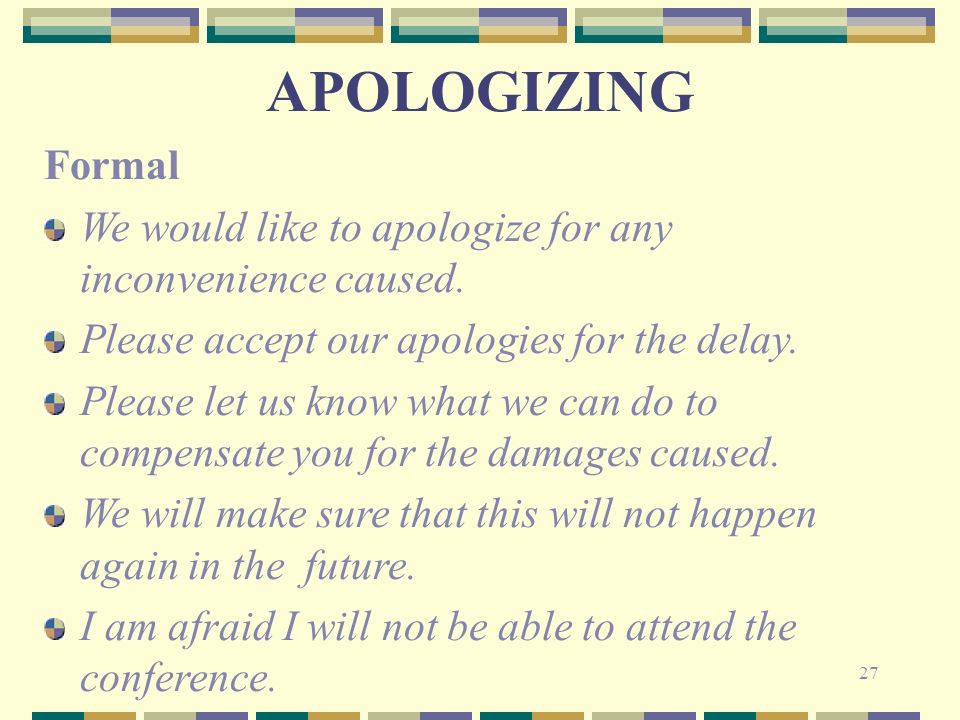 For some people, the holidays are wonderful and full of holiday cheer. But …
For some people, the holidays are wonderful and full of holiday cheer. But …
What's next when your apology is not accepted
By Michael Toebe
An apology, even a sincere, well-meaning one, is not always accepted. One’s name, credibility and reputation are mud. Forgiveness and trust are not granted. What then?
It can prove helpful to go through a detailed, yet simple process to increase the odds of your apology eventually being well-received.
Start with introspection and research of the dispute, ongoing conflict or crisis to create a specific problem statement of your situation. Do this first through a short, yet thorough, list of smart questions that you ask yourself with curiosity and uncompromising honesty.
Also, ask respectful questions of the party who is not unforgiving. Be humble and patiently seek to gather facts and learn from them.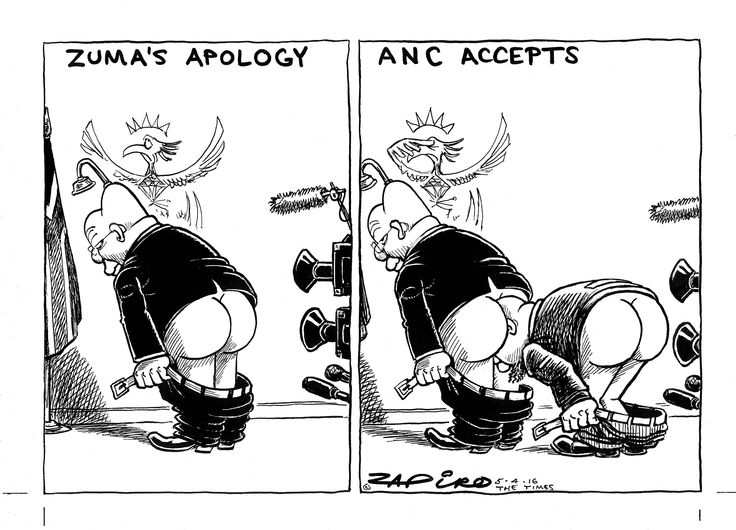
Questions could look something like the following:
- What is at the root of your error with someone that they feel angry to the point they are not offering forgiveness? What communication, actions or inaction were not received well, and why so? Put yourself in their shoes.
- What are people communicating to you — verbally and with other behaviors and/or facial expressions and body language — about their dissatisfaction?
- What do they expect now from you to heal negative emotions and make amends?
- Have you courageously, humbly and clearly expressed genuine remorse? Does the upset party feel you have done so?
- Have you apologized, with sincerity, listened well to those who are upset, shown patience and kept your composure, while taking the arrows of criticism?
- Have you committed your full intention to make things right with them, also specifically asking what it would take for them to feel “whole” again?
If this strategy has been done skillfully and thoroughly, an accurate, precise problem statement can be created that will detail the conflict, what caused it and all that ethically and specifically needs to transpire to solve the problem.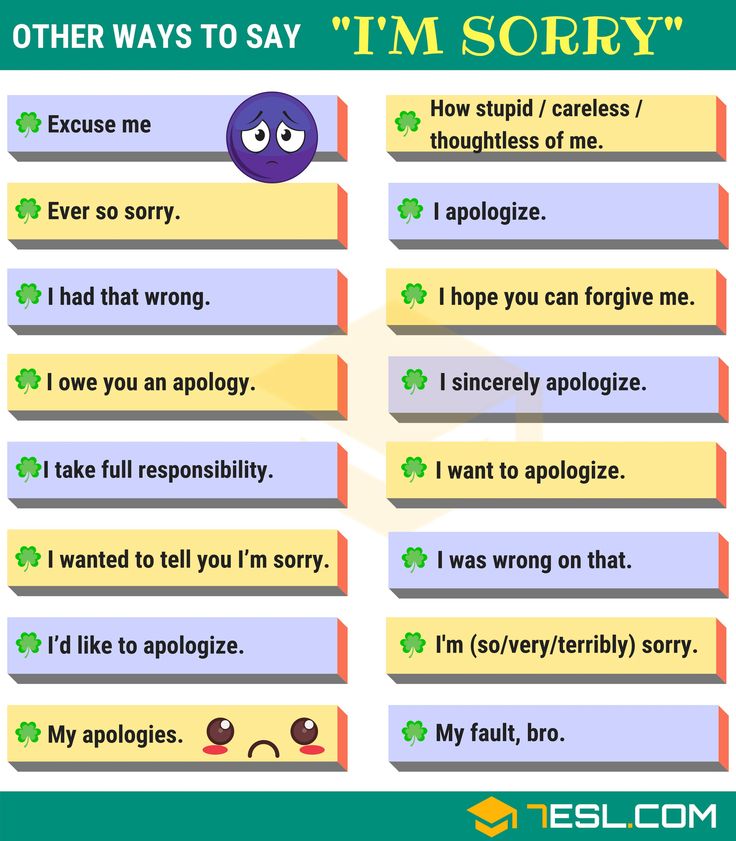
Then it’s a matter of overcoming uneasiness, fear, pride, annoyance, anger or contempt and bringing yourself to do it, keeping the big picture in mind.
It’s helpful during the entirety of this process to remember this quote from Brandon Cox:
“Respect people who trust you. It takes a lot for people to trust you, so treat their trust like precious porcelain.”
If you fracture or break something — tangible or intangible — that is precious to you, what is your usual response? Do you show indifference, or do you invest in painstaking effort to repair it?
To increase the likelihood that apologies will be accepted, either immediately or soon afterward, understand the critical importance of first mastering your own emotions (the only ones you can control). This is critical for success. Don’t let emotions become an impediment to improving a relationship and situation. Use the mind as an ally, not an enemy.
Champions in any endeavor calm themselves in chaos and stress and control any negative self talk or chatter in their head. These same champions quickly, reliably regain focus and emotional balance. They focus on succeeding in the moment, on the very next step. They block out distractions. They have humble confidence they will overcome and succeed. The stress is part of the process. You can do all this, too.
These same champions quickly, reliably regain focus and emotional balance. They focus on succeeding in the moment, on the very next step. They block out distractions. They have humble confidence they will overcome and succeed. The stress is part of the process. You can do all this, too.
From there, consider yourself an explorer whose responsibility it is to be patient, humble, sincere, likable and persistent to find that unmet need or needs through polite, curious, unselfish questioning.
If verbal or written curiosity is conducted with unselfish motives, you will bring down emotional walls of divide and move the needle forward in a contentious interaction toward improvement and mutual benefit. People will be more open, so you can determine clearly what they need to experience and feel to restore their emotional balance with you.
So, conduct “champion mindset and practices” — find out with patience and kindness what the unmet need or needs are by asking thoughtful, open-ended questions and patiently, attentively listening.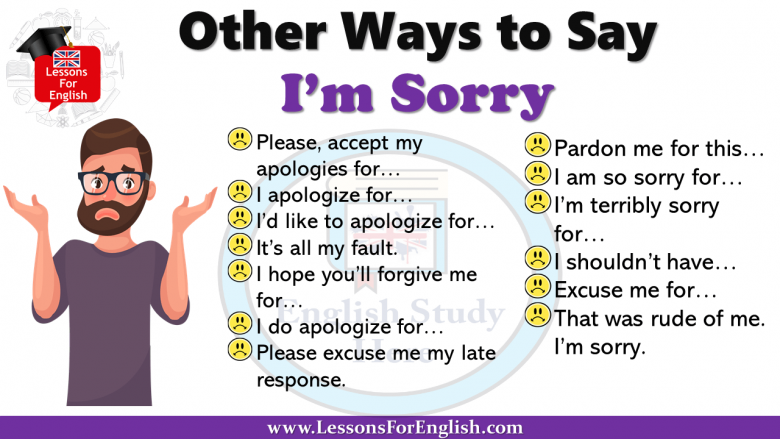
When you persevere with commitment, yet without aggression or negative attitude, then in most cases the information, needs and sticking points about offenses or betrayal are highly likely to emerge. Politely verify your findings to learn to address the right problems instead of assumed ones.
Make it easy for people to give you more of what you want. As William Ury wrote about in “Getting Past No,” it’s valuable to help work through conflict by building people a golden bridge, meaning, “involving them in devising a solution so that it becomes their idea, not just yours. It means satisfying their unmet interests.”
Building a golden bridge also involves helping people “save face,” a common challenge for many before they can begin to consider offering forgiveness. You do this best with humility and giving them agency in devising a solution for healing the rift.
Invite them to either suggest or co-create a remedy with you that will meet the needs that they have expressed and which you confirmed as what they really want. This isn’t done through manipulative tactics but through genuinely caring about other people and their very real, emotional needs. Care about them so they might care about you.
This isn’t done through manipulative tactics but through genuinely caring about other people and their very real, emotional needs. Care about them so they might care about you.
To summarize the pathway to pursue:
- Exhibit poise, conduct skillful stress management, pursue unselfish curiosity, and focus on people’s humanity.
- Accurately identify and learn about unmet needs and then verify.
- Invite the person or people to suggest a solution that can work for them and you and collaborate to meet those needs.
- Build a golden bridge to make it easy for them to accept your help and experience the intention of your best character.
Do this so they can see you in a more positive light, vastly improving the likelihood that they will, of their own volition, accept your apology.
Michael Toebe is a reputation, crisis management and communications analyst and practitioner, serving and helping individuals and organizations. He writes at Reputation Specialist Essays and Red Diamonds Essays, both on the Medium platform.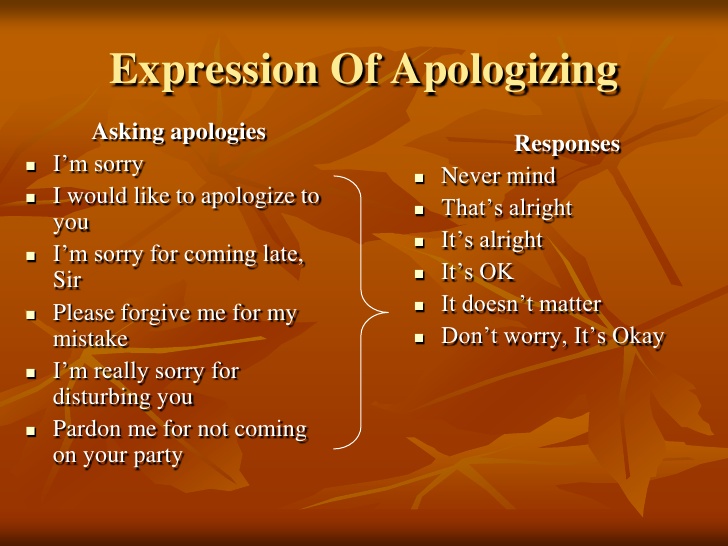
If you enjoyed this article, sign up for SmartBrief’s free e-mails on leadership and management, as well as PRSA SmartBrief and more of SmartBrief’s over 200 industry-focused newsletters.
Sorry. No data so far.
We're completely wrong in apologizing. So how should it be?
- Arianne Cohen
- BBC Worklife
Sign up for our 'Context' newsletter to help you understand what's going on.
Image copyright, Getty Images
Scholars apologize for being completely confused with the study of apologies. New discoveries in this area are extremely rare, because it is very difficult to properly organize such a study - about as difficult as determining whether a woodpecker has a headache.
Cindy Frantz, a psychologist at Oberlin College, Ohio, USA, is still trying.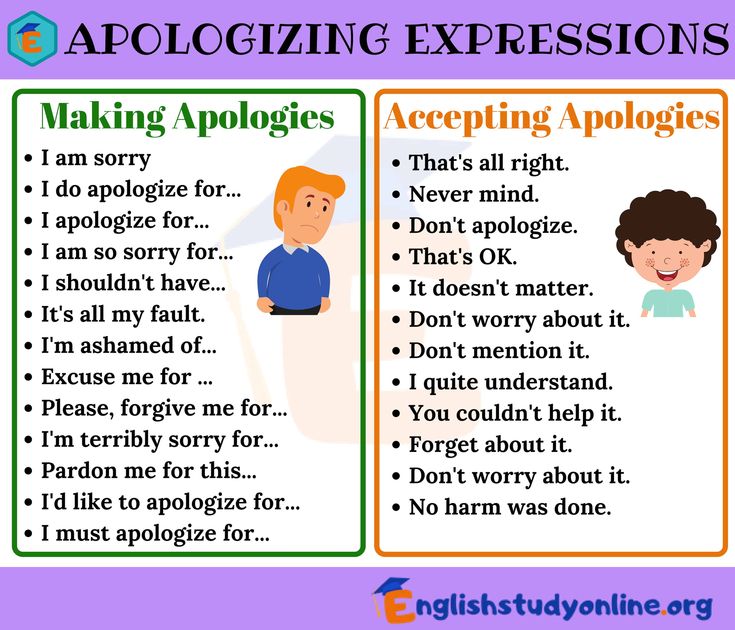 "I once tried to do a study in a lab where someone would do something wrong - something that I would like to apologize for," she says.
"I once tried to do a study in a lab where someone would do something wrong - something that I would like to apologize for," she says.
"But the logistics turned out to be very difficult - for ethical reasons. You cannot force a person to do something terrible, requiring immediate and sincere repentance, in a laboratory."
- "Sorry for the bad example." Dad hit a woman on the arm and then apologized
- The creators of "South Park" mockingly apologized to the Chinese authorities
- Justin Trudeau: "I don't remember how many times I wore dark makeup"
- For what and to whom the journalists had to apologize
Most scientists resorts to hypothetical questions ("Imagine Sam just ran his car over your leg") or invokes memories that are notoriously biased and unreliable ("Tell me how you apologized to your mother"). In addition, our cultural differences confuse things even more.
However, there is an oasis in the scorched wilderness of apology research. For about 20 years, Yosuke Otsubo, a psychologist at the University of Kobe in Japan, has studied how people apologize around the world, and late last year published the fifth of six papers in which he added essential instructions for those who want to learn how to apologize sincerely and effectively.
That's the main thing.
When you ask for forgiveness, it is best to pay for your guilt with a very expensive gift, to sacrifice something dear to you.
For example, a corporation that has done wrong to its customers may give them expensive gift certificates as a token of remorse, or an individual may try to make amends by canceling an important trip ("I canceled all my plans for this weekend and spend Saturday with you").
Of course, the idea of gifts for the sake of forgiveness is as old as the world. However, the original contribution of Yosuke Otsubo and the essence of his discovery is that the gift should not be aimed at enriching the recipient at all.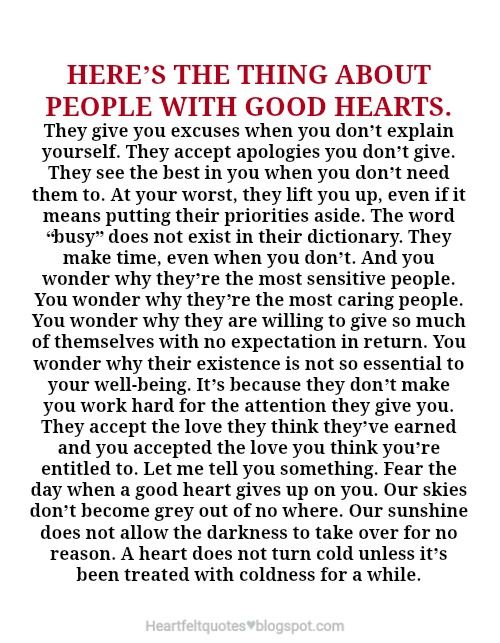
Skip Podcast and continue reading.
Podcast
What was that?
We quickly, simply and clearly explain what happened, why it's important and what's next.
episodes
The End of the Story Podcast
"My research has shown that the main thing that matters is the price for the abuser," he says. In other words, the gift must hurt the person who gives it.
Otsubo's work demonstrates that this is true for groups as well as individuals, for both public and private apologies, in countries as diverse as the US, South Korea, the Netherlands, Indonesia, Chile, Japan, and China.
He gives an example: popular Japanese singer Minami Minegishi apologized to her fans for her behavior that violated her contract (prohibition of relationships with young people) by shaving her head bald and showing how dear her career and relationships with fans are.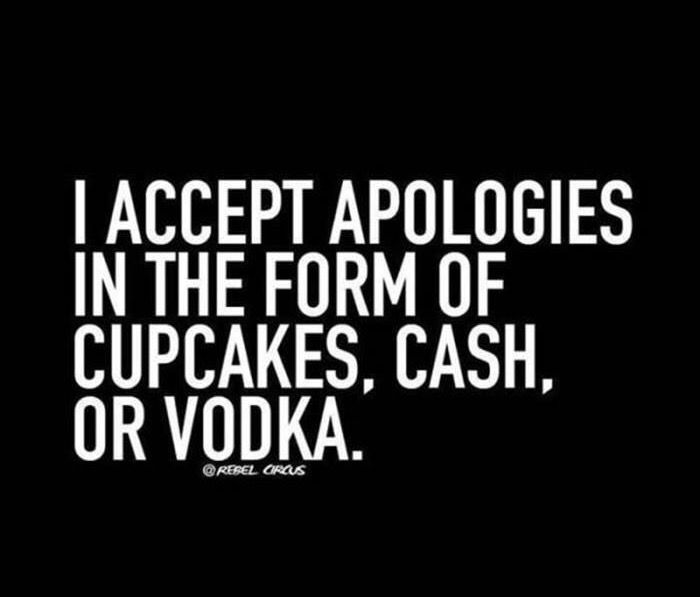 At the same time, she stressed that she would never again do anything that would harm this relationship.
At the same time, she stressed that she would never again do anything that would harm this relationship.
For those of us who are used to beating around the bush and mumbling "well, I'm sorry, you understand how this happened, I didn't mean it at all ...", this is a real conceptual shift: the purpose of an apology is not to say "I'm sorry" and explain your past behavior, but to show how much you value the relationship and the lesson learned.
Be sure to make a convincing promise that your bad behavior will never happen again (and your gift cost you too much to use such an apology again).
Restoring Self-Respect
Aside from gifts, the rest of the rules for making an apology are pretty simple and straightforward, says Amy Ebesu Hubbard, dean of the Department of Communications at the University of Hawaii at Manoa (USA): accept responsibility for what you did, for the harm and suffering caused by your act, promise to behave well in the future, offer immediate remedial action, and demonstrate sincerity of remorse.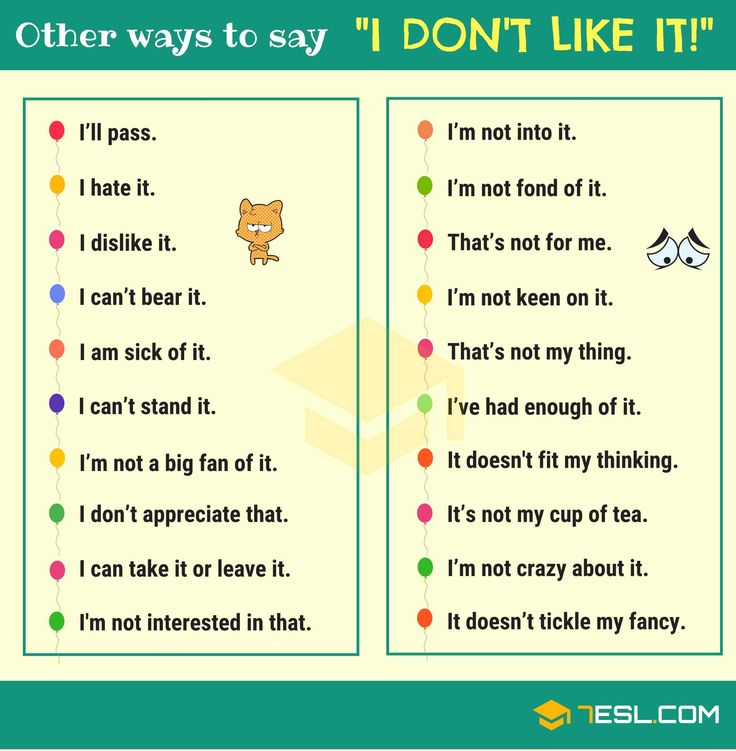
The words "I'm sorry" and "I apologize" must be used, although not all of the listed components are necessary in case of minor transgressions.
Image copyright, Getty Images
Image caption,Revisiting a mistake, analyzing it while apologizing is highly undesirable, as it only reinforces the offended circumstance of what happened.
Another recent study published in the American Marketing Association Journal of Marketing, an interesting point is added: start with "thank you for ...", especially when it comes to not very serious cases.
"Instead of saying "sorry for the long wait," say "thank you for your understanding" or "thank you for your patience" first, says study lead author Xiaoyang Deng, associate professor of marketing at Ohio State University's Fisher College of Business ( United States), who conducted seven studies on the behavior of American and Chinese students and Amazon employees in situations involving missed appointments and poor service in restaurants and shopping.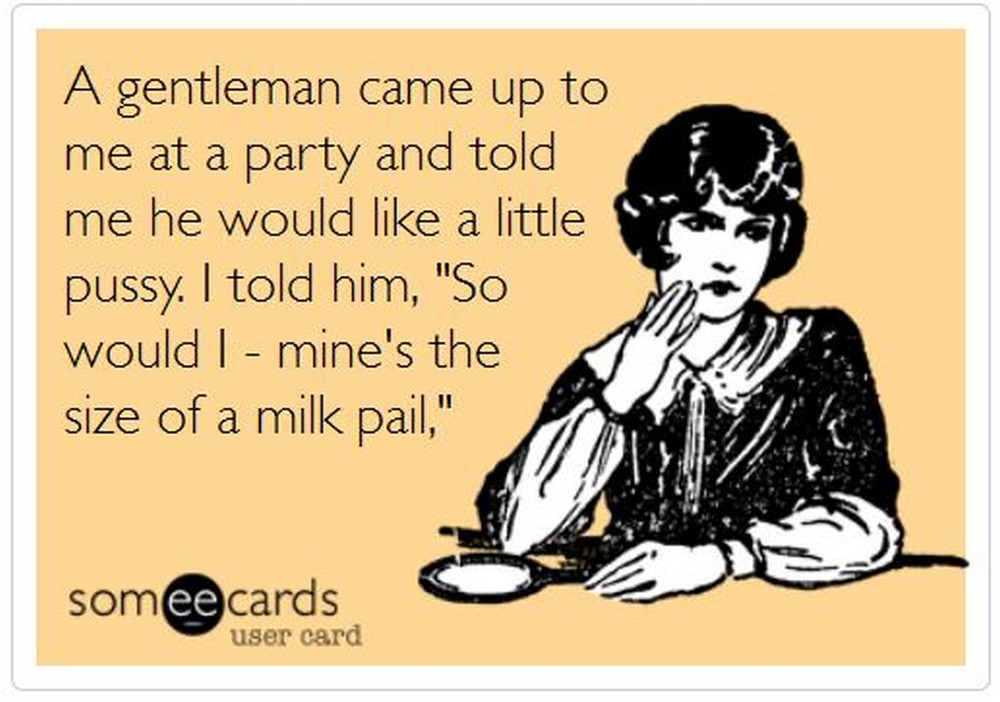
"Showing how much you appreciate your customers who have been affected by your actions, you increase their self-esteem. Which, in turn, leads to increased satisfaction with the situation."
In addition, she recommends not going back into the details of the blunder, as this will only reinforce it in the memory of offended people. Instead, just unconditionally admit your mistake.
As a rule of thumb, gratitude and apology work best in tandem, says Cindy Franz.
"Feeling highly valued by others is a key psychological need, and your gratitude will help repair the self-esteem damaged by your act," she emphasizes.
"Gratefulness restores self-respect, and apology shows how you intend to behave in the future."
Image copyright, Getty Images
Image caption,Japanese apologies: eyes on the floor
These recommendations are supported by the work of Alison Wood Brooks, assistant professor of business management at Harvard Business School. She (along with a colleague) is currently immersed in a veritable treasure trove of apologies - the archives of parole hearings for crimes ranging from speeding to murder.
She (along with a colleague) is currently immersed in a veritable treasure trove of apologies - the archives of parole hearings for crimes ranging from speeding to murder.
She has found that apologies with promises of good future behavior are more effective. But an apology that includes an explanation of why a violation or a crime was committed does not have such a result.
For example, members of the parole board do not like to be told, "I was driving drunk because I was very tired and wanted to leave quickly. I take full responsibility for this wrong decision."
Here's what they want to hear: "I plan to attend Alcoholics Anonymous meetings twice a week and go to the gym on Sundays."
According to Brooks, her research suggests that explaining and making excuses for past wrongdoing should be avoided.
Choosing the right time is important. Still eagerly cited, Cindy Franz's study bears the telling title "Better late than early": don't apologize too quickly, it won't work, it notes.
“The purpose of an apology is to help the victim of your act feel heard and understood, and to convince the perpetrator that he will not do it again,” says Franz. “Thus, your hasty and fussy apology made before the offended speak out, they won't give you anything."
The sincerity of the apologetic
Apology experts are very interesting to talk to because they perceive everything that happens in the world as a series of apologies, although sometimes they can not remember the details of the wrongs caused.
Image copyright, Getty Images
Image caption,Yosuke Otsubo, a psychologist at Kobe University, believes that the best way to apologize is to pay for your guilt with a gift that will cost the giver dearly
All my interlocutors agree that public apologies that are not addressed specifically to the person who is offended are completely useless. And those - 98%.
A classic example is a politician caught cheating on his wife. Such a politician usually makes a public apology to his constituents, and only then, inside these apologies, along the way, asks for forgiveness from the deceived wife.
Such a politician usually makes a public apology to his constituents, and only then, inside these apologies, along the way, asks for forgiveness from the deceived wife.
"It looks a little strange," says Ebesu Hubbard, emphasizing that bystanders and those to whom an apology is addressed may perceive the level of sincerity of the apologizer quite differently.
"The most important thing is whether the one to whom the apology is made recognizes their sincerity." What others think is irrelevant.
She praises Kentucky Gov. Andy Basher, who in late April called a man who registered for unemployment benefits under the name of famous rapper Tupac Shakur a scammer. It turned out, however, that this is a real name, and the Kentuckian, the full namesake of the late rapper, was offended.
"Then Basher did everything right when you want to apologize properly," emphasizes Ebesu Hubbard.
First, he called Shakur to ask for forgiveness in person, then publicly stated that he had offended a person, fully admitted his guilt and - most importantly - praised the generosity of the real Tupac Shakur.
However, a typical example of a corporate apology is KFC's actions in 2018, says Edwin Battistella, author of I'm Sorry About It. The language of public apologies."
Faced with the problem of delivering chicken to its restaurants, KFC published an apology to customers in newspapers, in which illustrations in the familiar logo were reversed - "FCK".
In addition, on Twitter, the company wrote : "The chicken crossed the road, but did not enter our restaurant," which provoked a flurry of humorous comments.0011
"They came out really well," says Battistella. "They managed to play a trick on themselves."
Read the original English version of this article at BBC Worklife.
How to respond to an apology
Rubric: What to say Here is a collection of words, phrases and expressions that will help you answer when you are asked for forgiveness, apologize. Each list item is a self-sufficient (complete, complete) response text.
Recommendations for selection are waiting for you at the end of the page.
- Apologies accepted.
- Okay, I hope in the future you will learn how to express your negative feelings in a non-offensive way.
- Where's the chocolate tea? You won't be able to make amends without them!
- I hope you will do your best to prevent this from happening again. For now, I consider this topic closed.
- No need to apologize. I will remember everything for you ... at wholesale prices.
- This situation is an isolated incident in your partnership and we hope it will remain so.
- I don't hold a grudge against you, but be careful next time.
- Don't worry, everything is fine.
- I heard you. I hope your common sense doesn't fail you anymore.
- Good. Let's now decide together how we will proceed in the future in such situations, so that we both feel comfortable.
- Your apologies, unfortunately, do not cover the damage.
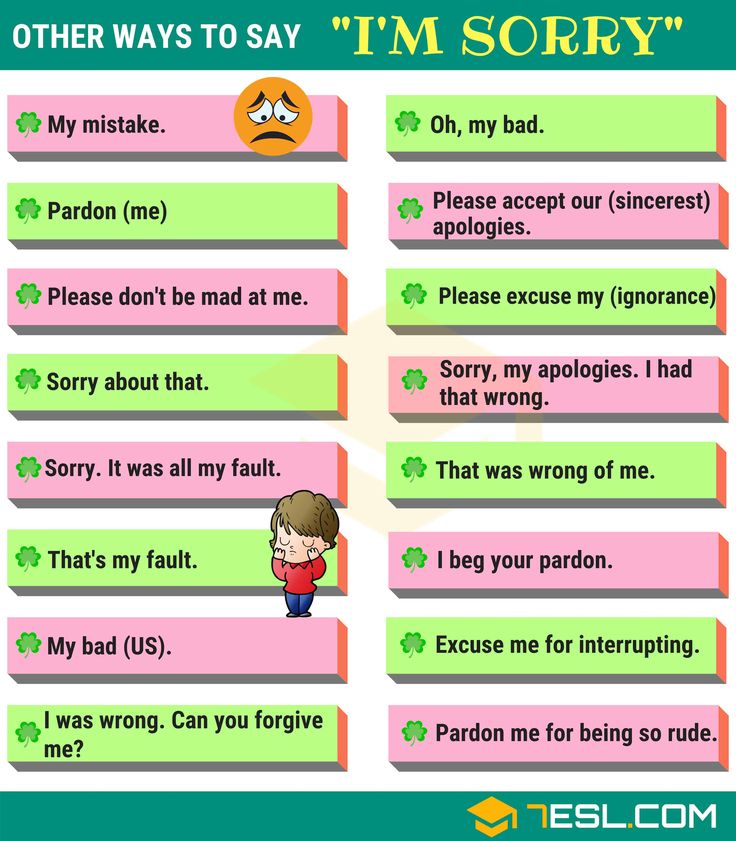 Do you now have the time and willingness to discuss ways to compensate for the damage done?
Do you now have the time and willingness to discuss ways to compensate for the damage done? - It doesn't bother me anymore, don't worry.
- Thank you for your apologies, they will help me forget the offense.
- Do you have a session of memories today, rethinking what you did and trying to return the past? Not sure if I want to take part in this.
- Don't worry about it.
- I see that your apology is sincere, but my budget does not include money to buy a new item (to replace the damaged / broken one). Maybe together we can think about how to be?
- This is no longer a problem. Get it out of your head.
- I hope you will be better in the future?
- Your apology and the terrifying information that comes with it will surely deprive me of sleep and appetite. If I've finished my presentation, I'll go about my business. Unlike you, I have no time to engage in chatter and torment.
- Don't worry. We all make mistakes.
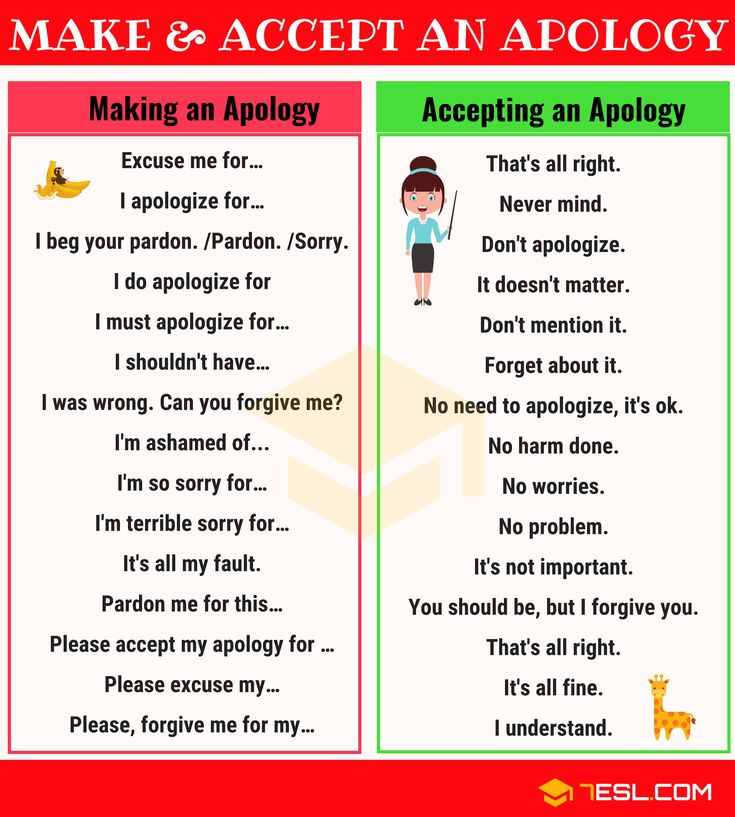
- You apologize so touchingly that it would be unfair not to accept repentance from you.
- I'm sorry. But for the last time.
- Theories about what you did are interesting, but not convincing. I won't rush to apologize just yet, I need time to process what I've heard.
- It's all right. It's good that no one was hurt.
- I will not hide the fact that this still offends me. But I will try to erase the insult from my memory.
- Thanks for the explanation. I understood everything, and I am no longer angry.
- I appreciate your remorse. It will help me quickly forget the misunderstanding that has arisen. I hope this doesn't happen again in the future.
- Better get your missing person status back. Only this time, forever!
- Don't worry. The main thing is that everyone is alive and well.
- Thank you for taking the trouble to explain and correct yourself. Let's forget about it.
- Let's start from scratch.
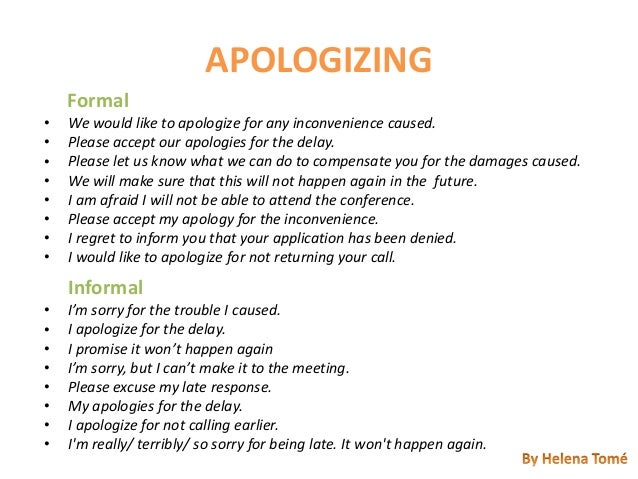
- Touched by your apology, but so far your remorse does not inspire confidence. I will allow myself to immediately forget about him and return to my business.
- Don't worry. I don't hold grudges.
- No problem!
- I promise to try to excuse you.
- Of course I forgive you.
- I am glad that you found the strength to admit your mistake and apologize. I forgive, but I can't forget yet. Therefore, I do not promise that our communication will continue in the same format.
- Don't blame yourself. It's just that both of us were unlucky, the circumstances were not in our favor.
- Everything is fine, I already forgot!
- You just revealed another you to me. Now I'm even glad that this misunderstanding happened.
- These are small things. You didn't do anything terrible.
- Never mind, everything is fine.
- It's nice that you have a conscience. So I wasn't wrong about you.
- I am no longer angry.

- Would you forgive yourself?
- I am sincerely sorry that you have to apologize. It's not your fault what happened. There should be another person in your place now.
- No need to apologize. It was the result of a misunderstanding on both sides. Now we will know more about each other.
- Your worries are in vain. I'm not mad at you anymore.
- And forgive me for my intemperance. I was in a bad mood (feeling) that day, so I flared up.
- I forgive you with pleasure.
- Let's forget. Nothing could be changed there.
- Yes, today is a good day to forgive each other. I give you my forgiveness and I hope that you will be able to forget all the insults.
- I didn't take offense at you.
- I appreciate your attempt at reconciliation. I think we have reached an understanding. Let's discuss other questions now.
- Good. From that day on, it's all in the past.
- Didn't know that you could be tormented by remorse.
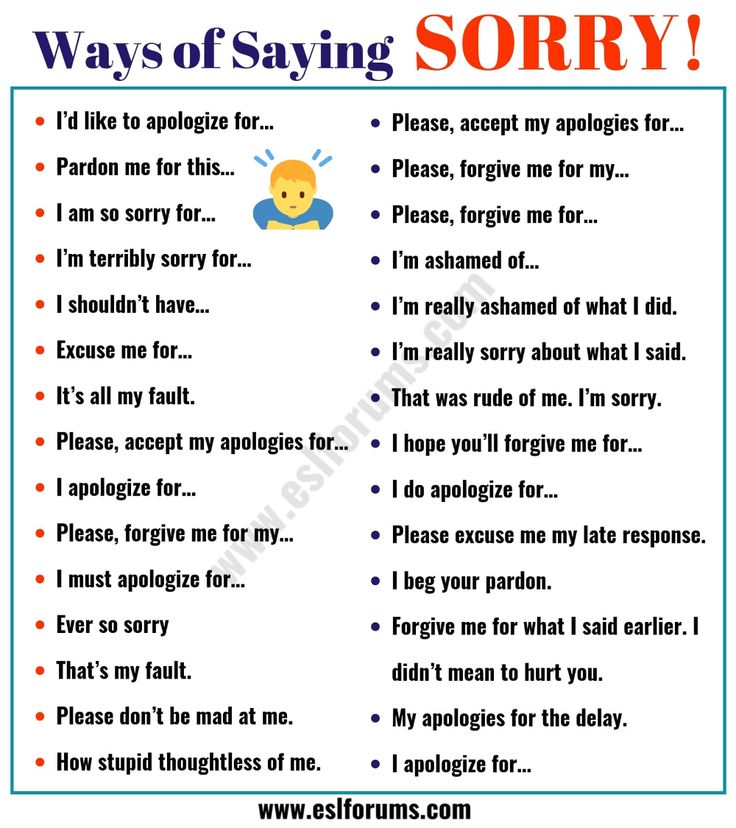 I'll probably forgive you, but I won't be able to forget - this is not forgotten.
I'll probably forgive you, but I won't be able to forget - this is not forgotten. - Apologies accepted. And let nothing interfere with our friendship from today.
- I'll forgive you, but don't do this again.
- Of course, I will forgive you. Condescension to one's neighbor is one of the strengths of my character.
- Trivia. What was, is gone.
- Thank you for your remorse, it convinced me that I was dealing with a decent person.
- Okay, forget it. I can't be mad at you forever. Anything happens.
- I accept your apologies. I know that you didn't do it on purpose (without malicious intent).
- I wasn't angry. You just thought.
- I agree to reconciliation. Hopefully this experience will make us both smarter.
- You are late. Forgiveness Sunday was yesterday.
- Apology accepted. It was unpleasant for me, but I will try to forget this incident as soon as possible.
- Thank you for telling me your thoughts about your own behavior.
 Now I will know what you thought about in your free time.
Now I will know what you thought about in your free time. - Not ready to accept your apology yet. Perhaps we will return to this topic later.
- God will forgive!
- I hope you really realized that you were wrong. You can consider yourself forgiven.
- Okay, let's forget the old. I'm not an angel either.
- I am pleased that our relationship is dearer to you than pride.
- I, too, am sorry that this happened. I'll try to forgive you, but I can't promise anything.
- God forgives and I forgive.
- Oh, you don't even have to apologize for these trifles.
- Good. Now I would like you to solve the issue of repairing the damaged item.
- I will remember your words for years to come…
- You look like a man reading his tax return aloud… I can't refuse your forgiveness.
- How beautifully and convincingly you apologize. When I have free time, I'll think about what to do with it...
- Just don't use so many questionable substances next time and you won't have to apologize.
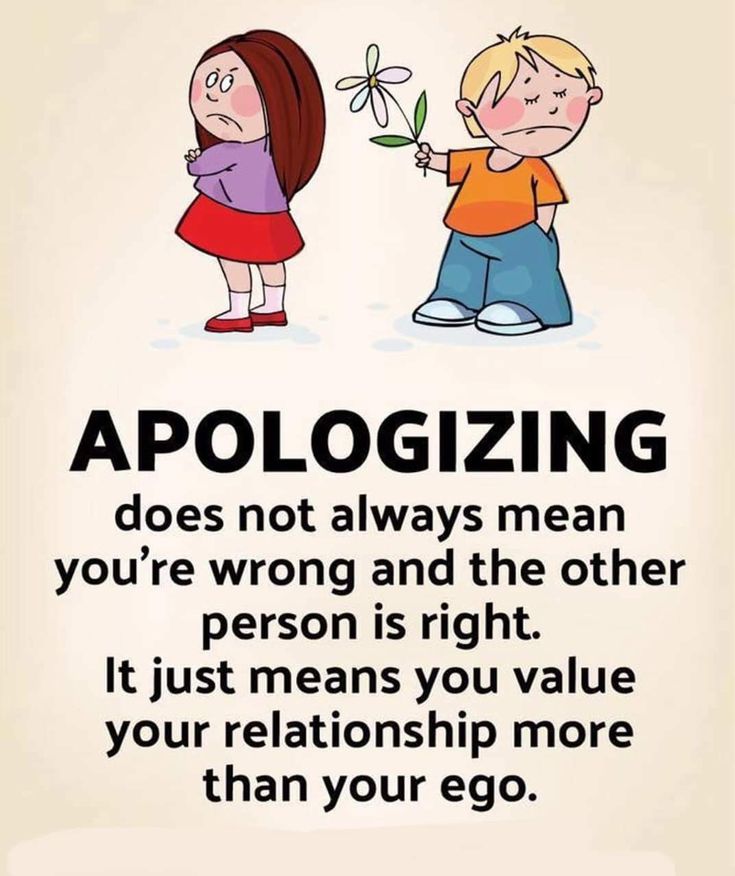
- I'm sorry to be rude, but I hope I never see you again in my life.
- God forgave and commanded us.
- Okay, so be it, I'm sorry. I can't watch you tormented by guilt forever.
- Why are you looking at me as if you rang the doorbell and, with the New Testament in your hands, began to ask if I was ready to “let Christ into my life”? Of course, I am ready to restore peace and normal relations between us.
- And are you ready to compensate me for the cost of repairing the thing (broken by you)?
- Don't waste your energy on feeling guilty. I don't know how to be angry for a long time with those I truly love.
- You even apologize as a person who has a black soul. Kindly leave me and take your place in hell.
- I think it is unforgivable to continue torturing each other, we must hurry to be happy again. It's good that you gave us both the opportunity and apologized. Trouble in the past.
- I understand you. I hope our friendship is strong enough to survive this situation.
 I will try very hard to deal with resentment, let it go and forgive you.
I will try very hard to deal with resentment, let it go and forgive you. - Okay, I'm not angry anymore. And for God's sake, get out!
- I forgive and I say goodbye. I am the best thing in your life, and you are the worst thing in mine. And I'm fed up with this toxic relationship. Leave.
- I'm sorry too when a good person is ignited by a bad idea. Let's consider that we both got an invaluable experience that does not need to be repeated.
- Thank you for being able to apologize. I appreciate it.
- I'll forgive you, but you won't get off with words alone. You still need to fix the situation (pay for the repair of the thing, buy a new one to replace the damaged one, etc.).
- What are you... I haven't had time to be offended yet, and you are already apologizing.
- I'm sorry. Everyone has the right to make a mistake, but not everyone knows how to realize it.
- Forgiveness is possible only after punishment. First, I will appoint a punishment, and then we will talk about your forgiveness.
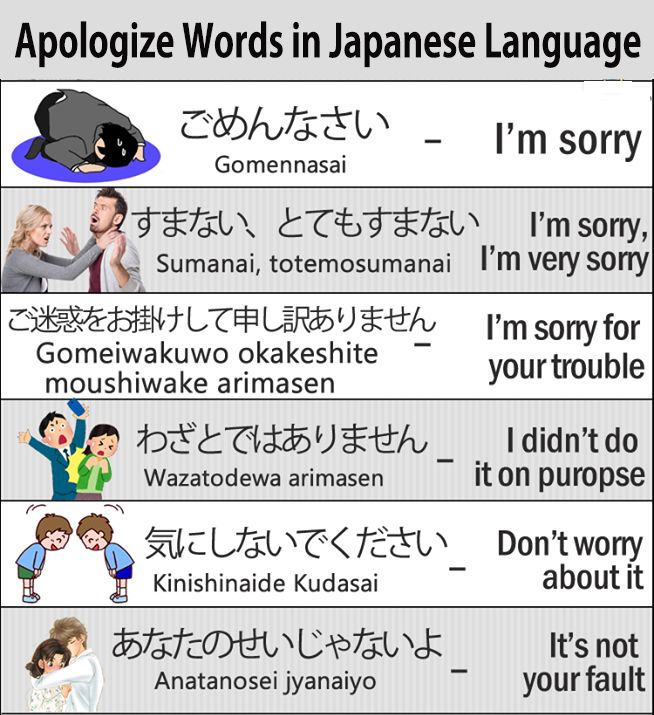 Ready to be punished?
Ready to be punished? - I consider the conflict resolved.
- Good. How soon can you fix what's broken?
- Yes, it's a pity that this happened. I need time to calm down.
- Apology accepted, but the issue of compensation remains open. I would like to resolve this issue as soon as possible - do not delay, please.
- It should be noted with cognac... Cognac is very conducive to expiation of sins.
- I guess I'll have to excuse you. Otherwise, I will earn a dubious reputation as a vindictive witch...
- It is impossible to be angry with you for long.
- I love reciprocity: how sincere your apology is, how sincere is my forgiveness.
- What indulgence do you expect from me: a hug or a kiss?
- Okay, let's give you a chance to improve. But there will be no second chance, I warn you.
- You can't spread an apology on bread or put it in your pocket. How are you going to atone for sins?
- Okay, we all learn from our mistakes.
 Only the smart ones learn from the mistakes of others. I hope we both get smarter in the future.
Only the smart ones learn from the mistakes of others. I hope we both get smarter in the future. - This is not the first time... I would not want our relationship to be constantly marred by requests for forgiveness.
- Betrayal cannot be forgiven, but I will try.
- God will forgive, and it's not my job to arrange your meeting.
- I should think...
- Thank you for taking the step towards reconciliation, otherwise I did not know how to resolve this situation.
- I'm sorry, I have nowhere else to get forgiveness for you. You have exhausted your limit for a long time.
- Don't worry so much about the inconvenience caused. I took revenge on you a long time ago, you just haven't heard about it yet.
If you find it difficult to choose the best answer, the following recommendations will help you:
- An adequate assessment of guilt will help you choose the best answer. For example, if a person is only to blame for the fact that he unintentionally (due to circumstances, environmental conditions, etc.
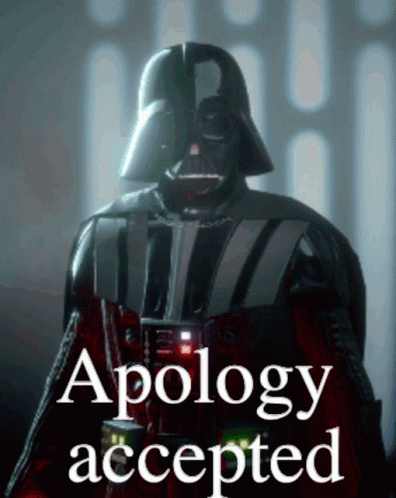 ) bumped into you, then the phrases “It’s okay, you didn’t plan anything bad”, “Trifles, don’t worry!” , and the like - will be appropriate. In this case, the “guilty” didn’t actually do anything wrong, but he thinks he offended/insulted you. If a person spoiled (broke, rendered unusable, destroyed, lost, etc.) material things / valuables - the above answers will be relevant only in cases where the damaged thing had no significance for you, was not used and was not needed. However, by using these phrases (as if brushing aside the problem) in cases where material damage is caused by a child, you seem to inform him that things are worthless and, therefore, the culprit should not think about making amends and apologize - so you contribute to the formation in the child of an irresponsible attitude towards other people's property. As a result of such an attitude, he can more than once get into unpleasant situations already in adulthood (if this belief takes root in the mind).
) bumped into you, then the phrases “It’s okay, you didn’t plan anything bad”, “Trifles, don’t worry!” , and the like - will be appropriate. In this case, the “guilty” didn’t actually do anything wrong, but he thinks he offended/insulted you. If a person spoiled (broke, rendered unusable, destroyed, lost, etc.) material things / valuables - the above answers will be relevant only in cases where the damaged thing had no significance for you, was not used and was not needed. However, by using these phrases (as if brushing aside the problem) in cases where material damage is caused by a child, you seem to inform him that things are worthless and, therefore, the culprit should not think about making amends and apologize - so you contribute to the formation in the child of an irresponsible attitude towards other people's property. As a result of such an attitude, he can more than once get into unpleasant situations already in adulthood (if this belief takes root in the mind). - In addition to the degree of guilt, determine whether (other than an apology) compensation for damage is required from the culprit (in case of damage/loss of any property).
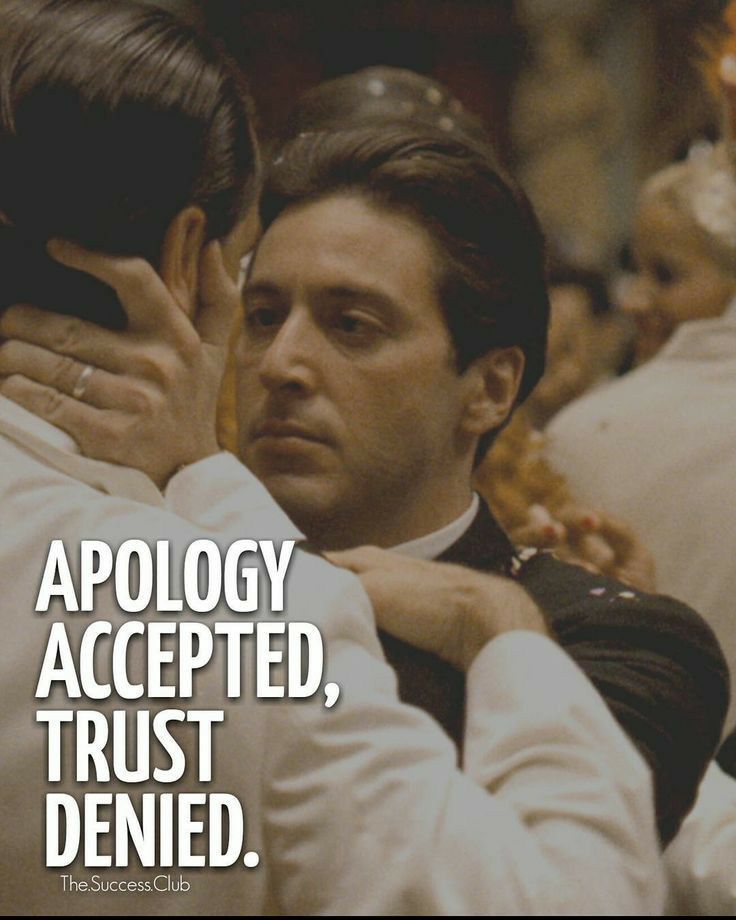 If compensation for the harm caused is required, and the guilty person did not talk about it, choose those phrases that will turn the conversation in the direction you need (that is, phrases that include a reminder of the need to compensate for the damage). These phrases include: “Are you ready (a) to compensate me for the repair of the damaged item or will you make this repair yourself?”, “Good. Now I would like to discuss the repair of a broken thing.
If compensation for the harm caused is required, and the guilty person did not talk about it, choose those phrases that will turn the conversation in the direction you need (that is, phrases that include a reminder of the need to compensate for the damage). These phrases include: “Are you ready (a) to compensate me for the repair of the damaged item or will you make this repair yourself?”, “Good. Now I would like to discuss the repair of a broken thing. - Also determine if you would like to develop a further relationship with the perpetrator. After you apologize, you don't have to keep the friendship with the person, but you don't have to end it either. In this case, the decision to resume or terminate the relationship depends on you, your desire, intentions, circumstances, etc. If you accept an apology, then you confirm your agreement to forget about what happened (according to the rules of etiquette).
- If, through the fault of a person, important plans were violated / did not come true, or his actions did not receive the expected (and promised to you) result - choose such phrases to make him feel better (for example: “Don’t worry so much.
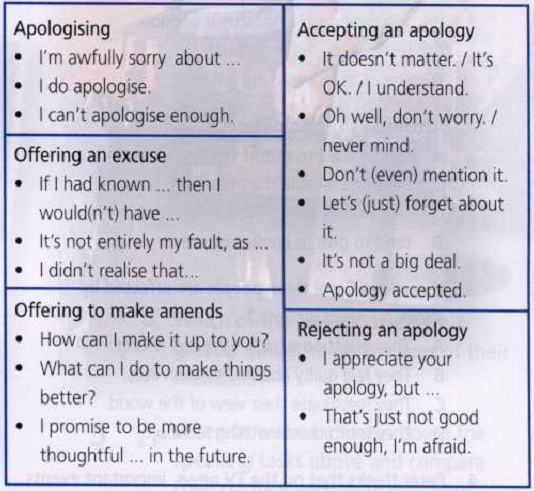 After all, you did (a) everything in your power", "Let's forget. Nothing could be changed. But we got valuable experience", "The main thing is that we are all alive, healthy, no one was hurt").
After all, you did (a) everything in your power", "Let's forget. Nothing could be changed. But we got valuable experience", "The main thing is that we are all alive, healthy, no one was hurt"). - If the interlocutor does not apologize for the misconduct for the first time (here we mean significant “sins”), and continues to commit these misconduct, abusing your patience, and you no longer have the desire to endlessly justify and forgive him, choose a phrase that will communicate your distrust ( for example: “You do this all the time and this time my forgiveness is the last”, “You have repeatedly apologized and continue to let me down, so I do not forgive you now and will not forgive you in the future”).
- If you have a desire to accept an apology, but doubt whether it is worth doing it, choose a phrase that will tell the interlocutor about your doubts and, perhaps, he will dispel them (for example: “Good. Let's decide how we will act in the future in such situations so that we both feel comfortable", "I'm afraid this won't be the last time.
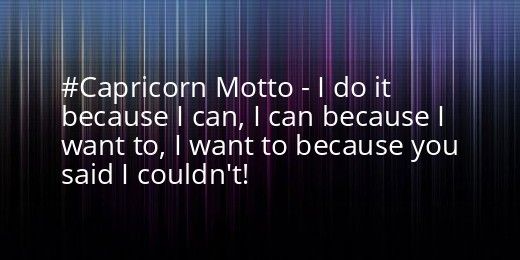 I think I'll be on my toes now waiting for the next such trick and I'm not sure if I need to forget this incident", etc.) . This is better than formally accepting an apology, but holding a grudge and pretending everything is fine.
I think I'll be on my toes now waiting for the next such trick and I'm not sure if I need to forget this incident", etc.) . This is better than formally accepting an apology, but holding a grudge and pretending everything is fine. - If you plan to maintain an even (friendly, family, professional, etc.) relationship, choose phrases that include gratitude for the apology (for example: “Thank you for finding the strength to admit the mistake, explain the misunderstanding and apologize. I appreciate your words ”, “Thank you for appreciating our friendship more than your own pride”, etc.). The offender will not only be pleased that you appreciated his courage, but also calmly - a settled problem reduces the feeling of internal anxiety, reduces the level of stress (for all participants in the situation).
- If you have firmly decided that there can be no further relationship between you, you are not ready to forgive, and you are not interested in explanations, choose phrases that will inform your opponent about your intentions.
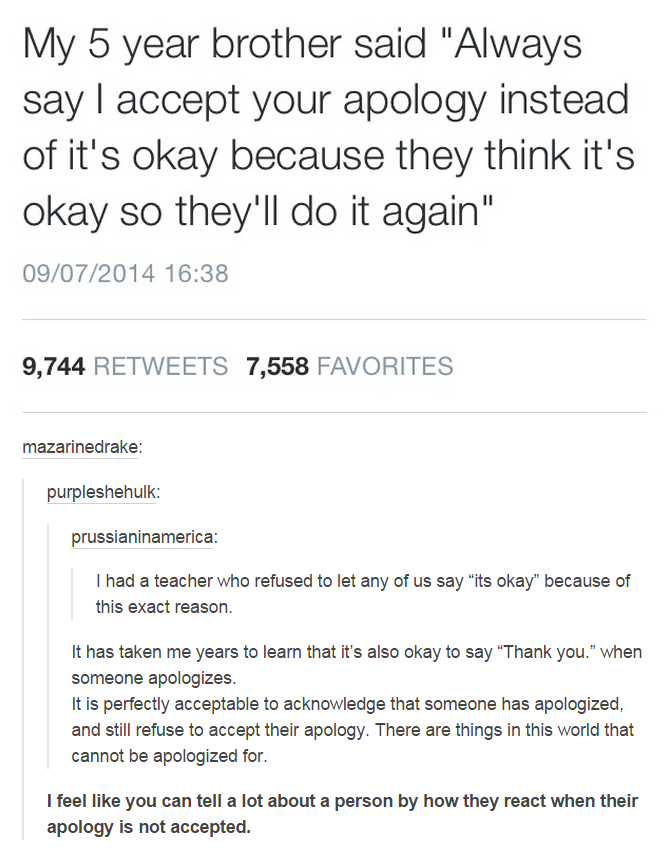 However, when choosing sarcastic phrases, with subtext, ambiguous, make sure that the addressee (the one to whom you address your words) is emotionally stable, balanced, able to accept your answer without aggression.
However, when choosing sarcastic phrases, with subtext, ambiguous, make sure that the addressee (the one to whom you address your words) is emotionally stable, balanced, able to accept your answer without aggression. - If you do not intend to accept an apology and assume that the culprit is emotionally unstable, unbalanced, quick-tempered, aggressive, can harm himself or you (after refusal) - try to choose a neutral phrase for your answer that will not offend him, will not damage his self-esteem, will not will cause an outbreak of aggression, resentment, etc. (that is, a phrase without sarcasm, ambiguity, harshness, rudeness, etc.). In this case, it’s better not to take risks, not to put pressure, not to aggravate the stressful situation, so as not to become the culprit of trouble yourself (such phrases include: “Thank you for your apologies, now it will be easier for me to forget the offense”, “Apologies are accepted”, “Okay, From this day on, it's all in the past." At the same time, it is not necessary to give the interlocutor a false hope (or a direct promise) for the resumption of the previous relationship as if nothing had happened.
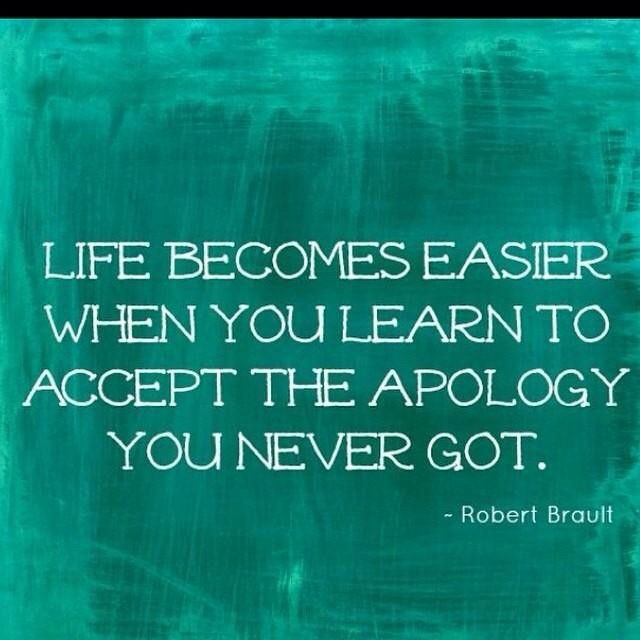 Especially if you do not plan to maintain any relationship in the future.
Especially if you do not plan to maintain any relationship in the future. - The phrases “It's all right”, “Let's forget about it” do not allow the interlocutor to understand how much you accepted the apology. When choosing a similar answer, reinforce it with a friendly smile, gesture (for example, a handshake, etc.), facial expressions, intonation, so that the addressee is convinced of your forgiveness (if you want to convince him of this). Or supplement such an answer with the phrases “I understand you and I’m not angry”, “This happened for the first time and I’m sure that it won’t happen again”, “I know that you did it by accident, without malicious intent.” You can also supplement your answer with an offer / invitation to spend time together (for example: go for a walk, drink coffee in a coffee shop, participate in a cultural event, visit an exhibition / cinema / gallery, etc.) - this way you let the interlocutor understand that you want to stay on friendly terms and enjoy his/her company.
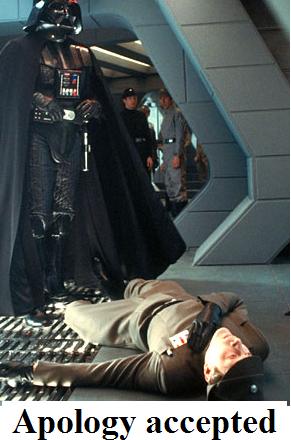 If you answer in a similar way in correspondence (in social networks, etc.), be sure to support your answer with the listed additional phrases, since in this case you do not have the opportunity to reinforce words with gestures, facial expressions, intonation, and the interlocutor will continue to remain in the dark regarding your decision to accept or not accept his remorse.
If you answer in a similar way in correspondence (in social networks, etc.), be sure to support your answer with the listed additional phrases, since in this case you do not have the opportunity to reinforce words with gestures, facial expressions, intonation, and the interlocutor will continue to remain in the dark regarding your decision to accept or not accept his remorse. - If you accept an apology from a child, avoid moralizing, rudeness, and such phrases as: “I told you!”, “You should have listened to your mother!”. Accepting an apology with a "stone" face, ignoring, refusing to talk, not listening, stubbornly silent, additionally punishing, asking "What are you apologizing for?" also not necessary (often it is dangerous for the child's psyche). Feelings of guilt and disturbed peace in relationships are already a significant punishment for a small person, and asking for forgiveness is a psychologically difficult test for him. Therefore, the moment of accepting an apology should not be made difficult, unpleasant, filled with shouting and criticism, strengthen the feeling of shame (he should not learn to apologize through shame).
 In this case, it is enough to hug and use such phrases as: “Nothing, anything happens in life ... The main thing is that we have each other”, “Thank you for apologizing. Now I’m not so offended and I will soon forget all the bad things.
In this case, it is enough to hug and use such phrases as: “Nothing, anything happens in life ... The main thing is that we have each other”, “Thank you for apologizing. Now I’m not so offended and I will soon forget all the bad things. - In business communication, as well as in formal, secular and any other, the degree of guilt is important for choosing the optimal answer. If a colleague/partner accidentally left a mug of tea on your desk (that is, he did nothing “criminal”, but feels embarrassed that he unintentionally annoyed you) and apologizes for this, the phrases: “It's okay , the mug didn’t bother me”, “Everything is in order, not a single document was damaged”, etc. In cases where you accept an apology for more significant errors, the same recommendations are relevant as for other communications (see paragraphs with No. 1 to No. 10 of these recommendations), with the only difference that sarcastic, ambiguous phrases are not used as an answer. Sufficient will be neutral, formal answers (without dubious humor, harshness, rudeness, without familiarity), said without malice, with restraint, without unnecessary emotions (for example: “The situation that has arisen is an isolated case in your partnership and, we hope, it will remain so”, “ I propose to decide how we will proceed in the future in such situations, so that we both feel comfortable", "I hope you will do everything possible so that this does not happen again.
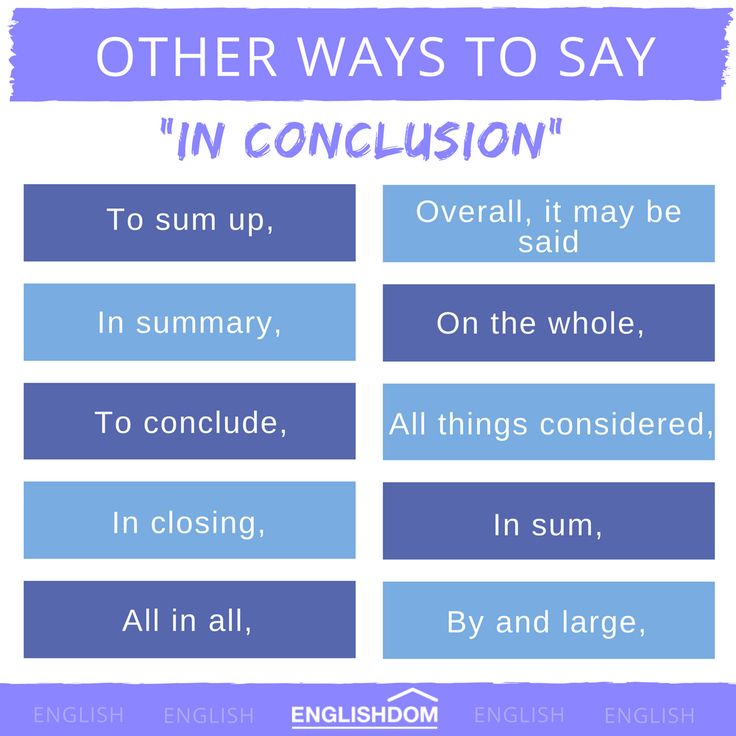 We will consider the misunderstanding settled").
We will consider the misunderstanding settled"). - On the day of Forgiveness Sunday, it is enough to answer “God forgave, and I forgive!”, “I give you my forgiveness and I will be glad (a) if you manage to forgive all the grief that I (consciously or unintentionally) caused you (a) ". At the same time, it is not required to remember and list everything you did / said that offended or theoretically could ever offend a person.
- In general, to select the optimal phrase, it will be sufficient to adequately assess how serious the misconduct (inflicted discomfort, damage, broken promises, provoked troubles, etc.) committed towards you, and what is the ultimate goal of the conversation ( for example, the goal might be: to restore a positive relationship or stop all communication forever, settle the issue of compensation for the harm caused, etc.). For an adequate assessment of guilt, it is necessary to learn to clearly distinguish between guilt and guilt itself. A person can only be held responsible for conscious decisions and actions.


